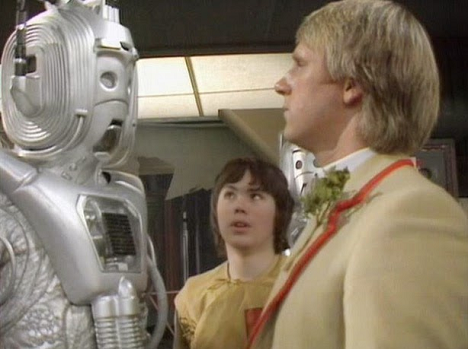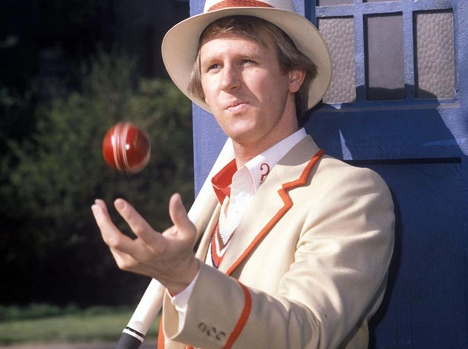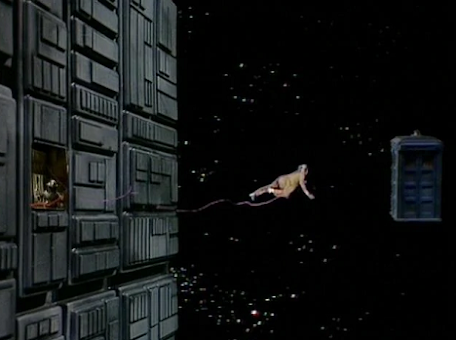Kinda by Christopher Bailey
1 - 9 February 1982
The struggle to complete write-ups after a too-long break, nevertheless, continued. Having been so busy in real life lately, it's been difficult for me to find time to catch up with this, which is a real pity. Once again I find myself unable to write quite as much about an episode as I'd like. Unlike
Four to Doomsday, however, in this instance there's almost too much to talk about.
I thought
Kinda was brilliant, which seems to be a pretty common opinion in these parts. What can I say? Its virtues are self-evident, in both the writing and the production design. The themes are pretty heavy; I don't know enough about Buddhism to remark on that aspect of the allegory, though there was plenty of pseudo-Christian imagery too. Deva Loka is a pretty straightforward Eden, for example.
I was interested to note that the first few steps of this serial called to mind certain stories of yesteryear. There's a shrinking group of human soldiers stationed out on the last frontier, living in fear of an evil from outside that will come in to destroy them all. This convention is quickly turned on its head, however. I wonder if this was a conscious deconstruction of the "base under siege" or just something incidental? The shoe certainly fits, and at this point in the history of Doctor Who, its awkward teen years, it seems fitting for it to start to question the things it took for granted in its childhood.
HINDLE: Don't you see? Well, then we'll be safe. For ever and ever. Outside'll never get in. Don't you see?
Tellingly, the most hysterical expression of this "keep them out" mentality in the story, quoted above, involves a quite literal urge for self-destruction. The equation of colonization with civilization is taken down quite scornfully, and as far as I'm concerned it's welcomed.
The Mara is the manifestation of all of this hate and selfishness. We're told by the Kinda that it "turns the wheel" of life and death, perpetuating itself on the suffering of others. This literal cycle of violence is paralleled in Hindle's blithe comment remarking on his abuse as a child, a suffering that he's now mindlessly perpetuating on others. The only way to escape it is to break the cycle; to find a "still point".
The story is philosophically rich, and I found a lot to enjoy in its performances too. Janet Fielding gets a nice opportunity to act her heart out; I was very impressed with the switch she flicks when the Mara is in control, the differences in her voice and mannerisms and all. Nyssa is sadly out of commission, taking what the wiki terms a "restorative TARDIS nap". Adric is about as tolerable as he ever is. "The Adric special" is performed again, and it's probably the best instance of it so far, though that hasn't been a very high bar.
The Doctor seems to be in his element. Davison's Doctor is a bit more at home in this type of story than he is in something like
Earthshock, and the ease shows. I'm still warming to Five at this point, but maybe a few more
Kindas will fix me.
That's all I had for this one. I will return soon for a writeup on
The Visitation. See you then.
(Modified from the original posted at Gallifrey Base on 9 September 2022.)










